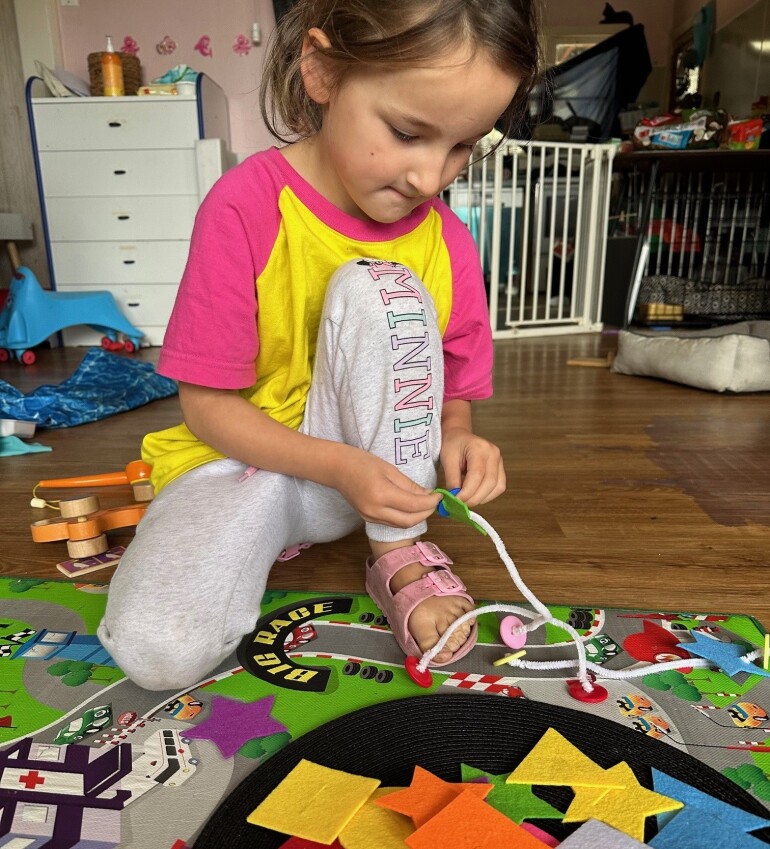News And Events

Fine Motor Skills
18 July 2024'Motor skills' describes the ability to control and coordinate movements. This can include fine motor control (e.g. small movements of the fingers and hands) and gross motor control (e.g. large and coordinated movements of the trunk, arms, and legs). The key fine motor skills that develop from birth include reach, touch, point, place, grasp, release, push, pull, shake, squeeze, tap, and twist. Fine motor skills are needed for things like self-feeding, dressing and undressing, toothbrushing, writing, etc.
Children use their hands to explore and learn about the environment and themselves, and this involves the coordination of the brain and muscles to make small, yet important, movements. By honing their hand-eye coordination and using the little muscles in their fingers, hands and wrists, fine motor skills allow children to grip, stack, thread, press, mould, cut, write and much more.
Fine motor skill development starts when we're babies, primarily with reflexes. A good example of this is the ‘palmar grasp’ where babies will grab onto a person’ finger by closing their hand around it. Before reaching 12 months babies may begin to pick objects up using a pincer grasp (using their thumb and one finger) and maybe even start to pass toys between their hands. Here is a broad overview of how fine motor skills develop in infants:
0-3 months:
- Places hands in mouth
- Attempts to reach for toys
3-6 months:
- Reaches for toys while on their tummy
- Transfers toys from one hand to the other
- Reaches both hands to play with feet
- Holds and shakes a toy using both hands
6-9 months:
- Able to hold and drink from a bottle
- Explores and examines an object using both hands and mouth
- Starts turning several pages of a board book at once
- Starts to isolate the index finger to touch things
- Starts finger feeding – with limited success
9-12 months:
- Finger feeds with ease
- Can release objects into a container
- Starts to use thumb and index finger to pick up tiny objects
- Bangs objects together
- Holds a toy with one hand
8-12 months:
- Finger feeds with ease
- Actively releases objects with good coordination
- Thumb and index finger become involved in grasp patterns and precision grasps start to develop
- In-hand manipulation starts to develop
At the toddler stage of fine motor skill development, children learn through play. An important skill that toddlers pick up is being able to understand that different objects have different weights and sizes.
By pre-school stage, children will have developed some basic fine motor skills which allow them to cut and stick, hold a pencil and build things out of blocks. At this age, children may develop the ability to use their non-dominate hand in order to stabilise objects like paper when playing and drawing.
Information collated using https://www.twinkl.co.nz and https://www.playlogy.co.nz


